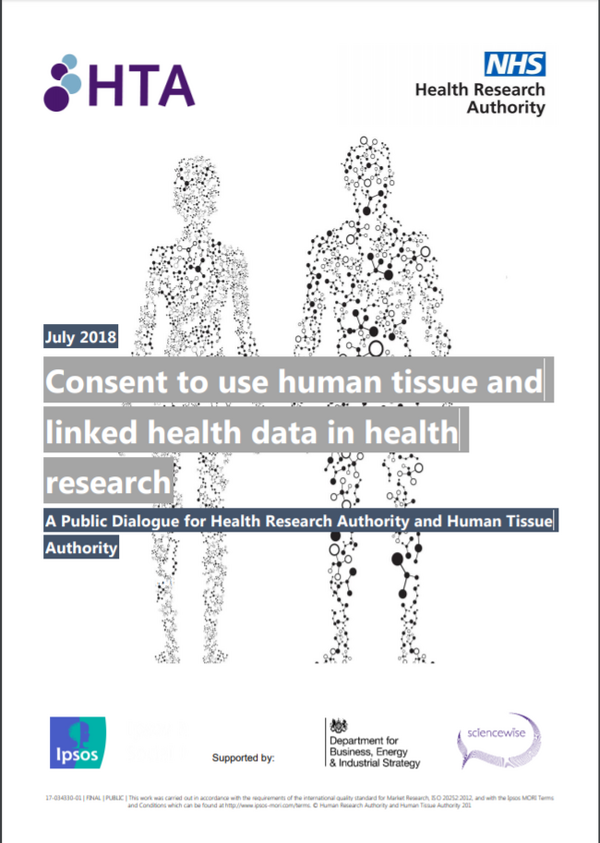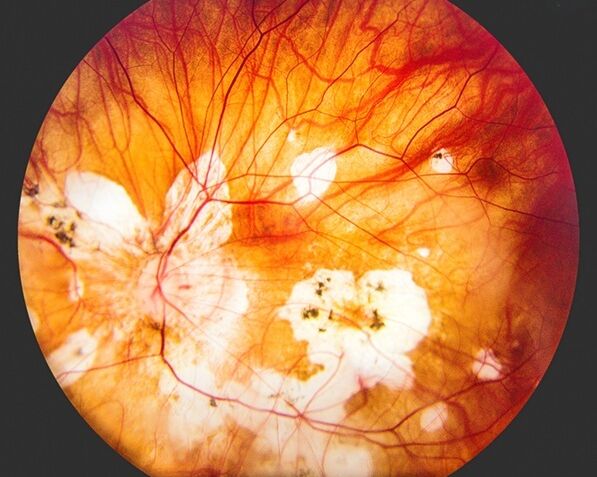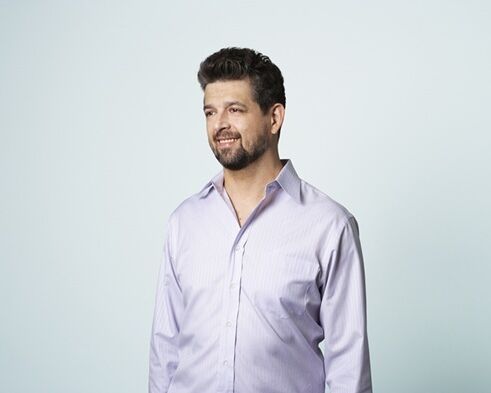Consent and participation in the 100,000 Genomes Project – public attitudes

A new public dialogue on attitudes to sharing personal data as part of research has used the 100,000 Genomes Project as an example of best practice in obtaining consent.
The way that Genomics England obtained consent from participants in the 100,000 Genomes Project was praised by the public focus groups who took part in the project, run by the Health Research Authority (HRA) and Human Tissue Authority (HTA), who are now considering how best to use Genomics England’s approach as an example of good practice for future work and guidance for researchers on gaining consent.
The HRA and HTA commissioned Ipsos Mori’s Public Dialogue Centre to better understand more about the public’s awareness of the importance of donated tissue being linked to patient health data, and to learn what reassurances the public may need in order to provide their consent.
As part of the public dialogue, participants in a series of focus groups were invited to hear more about the 100,000 Genomes Project. Whilst participants had a limited understanding of the science behind the project, they were positive about the work once they’d seen a video – one of a number commissioned by Genomics England as part of the consent process for potential participants – explaining the technology and its benefits.
The focus group participants found that the wording was simple and positively constructed, and it was felt this would help potential participants in the 100,000 Genomes Project to digest the information, and have a reasonable understanding of what consent would involve. Participants liked the fact the form listed different types of health data which can be accessed, and they also liked the discrete sections.
The HRA/HTA report also details a number of constructive comments from focus group participants on how the consent process could be made clearer and more useful, which will be used to further improve the consent model.
Our entire project is founded on informed consent from our participants who agree to take part. We have been careful from the outset to ensure that our consent process is comprehensive and rigorous, and includes leaflets and videos that describe what their data will be used for and by whom. We’re pleased with this feedback, and the opportunity this report provides to reflect and further improve our consent model as genomic medicine becomes more embedded in routine NHS care. We look forward to contributing further to this ongoing piece of work with the HRA and the HTA.
Professor Mark Caulfield
Genomics England’s Chief Scientist
The HRA / HTA public dialogue was supported by Sciencewise and The Department for Business, Energy, and Industrial Strategy (BEIS). The final report can be viewed on the HRA website.
This report is a detailed look at public views on the various different ways in which informed consent can be gained for research. It is a welcome addition to our ‘Genomics Conversation’ which helps us to understand how, and in what circumstances the public are happy to provide their health data for research. As part of the conversation, Genomics England is carrying out further public dialogue that will help inform the development of a national genomic medicine service.
Katrina Nevin-Ridley
Director of Communications for Genomics England
Genomics England has also published a report on the views of black African and black Caribbean communities on participation in the 100,000 Genomes Project.. Other activities planned include a series of regional ‘future debates‘ on whole genome sequencing with the British Science Association, events in partnership with the Progress Educational Trust, and a survey of people with rare and genetic conditions in collaboration with Genetic Alliance UK.


